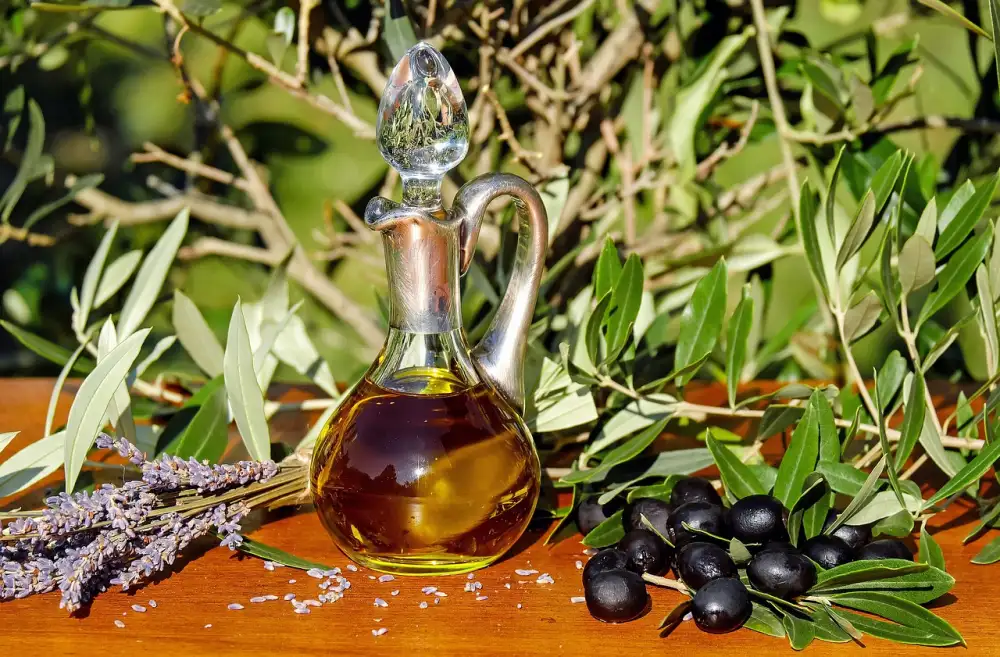Unveiling the Mystery: Can Peppermint Oil Truly Repel Mice at Home?

Mice infestation in homes can be a frustrating and unsanitary problem. These small rodents can cause damage to property, contaminate food, and spread diseases. While there are various methods available to deal with this issue, many homeowners are seeking natural alternatives to chemical-based repellents. One such solution that has gained popularity is peppermint oil. This aromatic essential oil is believed to have the power to repel mice and keep them at bay. But does it really work? In this article, we will delve into the scientific evidence behind peppermint oil as a mouse repellent and explore how it can be effectively used in homes.
Understanding the problem: Mice infestation in homes
Mice infestation in homes is a common problem that can cause significant damage and pose health risks. These small rodents are attracted to the warmth and abundance of food sources found in residential areas. Once they find their way into a home, mice can quickly multiply, creating a nuisance for homeowners. They chew through wires, insulation, and furniture, causing costly repairs. Additionally, mice carry diseases such as hantavirus and salmonella, which can be transmitted to humans through contact with their droppings or urine. It is crucial to address this issue promptly to prevent further damage and protect the well-being of the household.
Exploring natural repellents: Peppermint oil as a potential solution
Peppermint oil has long been hailed for its refreshing scent and various health benefits. But could it also be the answer to your mouse problem? Many homeowners are turning to natural repellents in their quest to rid their homes of these unwanted pests, and peppermint oil is emerging as a popular choice.
The strong aroma of peppermint oil is believed to be highly effective in repelling mice. It is said that the smell overwhelms their sensitive noses, making it difficult for them to navigate and find food sources. Additionally, mice are known to have an aversion to the scent of peppermint, making it an ideal natural deterrent.
Using peppermint oil as a mouse repellent is not only safe but also environmentally friendly. Unlike chemical-based solutions, which can be harmful to both humans and pets, peppermint oil poses no risks or side effects when used properly.
To use peppermint oil effectively, simply soak cotton balls in the oil and place them strategically around your home where mice are likely to enter or frequent. Focus on areas such as entry points, corners, and behind appliances. You can also mix a few drops of peppermint oil with water in a spray bottle and spritz it around your home.
It's important to note that while peppermint oil may help deter mice from entering your home, it may not completely eliminate an existing infestation. In such cases, professional pest control may still be necessary.
In addition to using peppermint oil, there are other preventive measures you can take to complement its effectiveness. Keep your home clean and free of food debris that might attract mice. Seal any cracks or gaps in walls, floors, and windows that could serve as entry points for rodents. And consider using traps or ultrasonic devices as supplemental methods of mouse control.
In conclusion, while further scientific research is needed to fully validate the effectiveness of peppermint oil as a mouse repellent, many homeowners have reported positive results with its use. Its natural and safe properties make it an attractive option for those seeking a chemical-free solution to their mouse infestation woes. So why not give peppermint oil a try and see if it can help keep those pesky mice at bay?
Scientific evidence: Does peppermint oil repel mice?
Scientific studies have been conducted to determine the efficacy of peppermint oil as a mouse repellent. One study published in the Journal of Pest Management Science found that mice showed aversion to peppermint oil and avoided areas treated with it. Another study in the International Journal of Molecular Sciences revealed that the strong scent of peppermint oil disrupts the olfactory system of mice, making it difficult for them to locate food sources and establish their territory. These findings suggest that peppermint oil may indeed repel mice effectively. However, more research is needed to fully understand its long-term effects and optimal application methods.
How to use peppermint oil effectively
1. Choose the right type of peppermint oil: Look for 100% pure, therapeutic-grade peppermint oil. Avoid synthetic or diluted versions, as they may not have the same repellent properties.
2. Locate problem areas: Identify the areas where mice are most active in your home. Common hotspots include entry points, nesting areas, and food storage areas.
3. Prepare a peppermint oil solution: Mix 10-15 drops of peppermint oil with 1 cup of water in a spray bottle. Shake well to ensure proper dilution.
4. Spray affected areas: Thoroughly spray the solution in the identified problem areas, focusing on cracks, crevices, and corners where mice may hide or enter your home.
5. Refresh regularly: Peppermint scent tends to fade over time. Reapply the solution every few days or whenever you notice a decrease in its aroma.
6. Use cotton balls soaked in peppermint oil: Alternatively, you can soak cotton balls in undiluted peppermint oil and place them strategically around your home near potential entry points or infested areas.
7. Combine with other deterrents: To maximize effectiveness, consider using other preventive measures such as sealing gaps and cracks, storing food properly, and keeping your home clean and clutter-free.
Remember that while peppermint oil is a natural repellent, it may not provide complete protection against mice infestation on its own. It works best when used alongside other preventive methods to create an inhospitable environment for these unwanted guests.
Other preventive measures to complement peppermint oil
Other preventive measures to complement peppermint oil include sealing any cracks or holes in your home's foundation, walls, and windows. Mice can squeeze through even the tiniest openings, so it's important to use caulk or steel wool to block their entry points. Additionally, keeping your home clean and free of food debris will make it less attractive to mice. Store food in airtight containers and regularly dispose of garbage. Trimming trees and shrubs near your home can also prevent mice from using them as pathways to enter your house. By combining these measures with the use of peppermint oil, you can create an environment that is unwelcoming to mice and effectively keep them at bay.
In conclusion, peppermint oil has shown promising results as a natural mouse repellent. Scientific studies have demonstrated its ability to deter mice due to its strong scent and potent properties. However, it is important to note that while peppermint oil can be effective in repelling mice, it may not work in all cases or for severe infestations.
To use peppermint oil effectively, it is recommended to apply a few drops onto cotton balls and place them strategically around areas where mice are commonly found. Replenishing the oil regularly is crucial to maintain its potency.
Additionally, it is essential to complement the use of peppermint oil with other preventive measures such as sealing cracks and holes, keeping food tightly sealed, and maintaining cleanliness in the home. These measures will create an environment that is less attractive and accessible to mice.
While peppermint oil can be a valuable tool in deterring mice from homes, it should not be solely relied upon for complete eradication. If a mouse infestation persists or worsens despite using peppermint oil and implementing preventive measures, it is advisable to seek professional pest control assistance.
Overall, when used correctly and in conjunction with other preventive measures, peppermint oil can be an effective natural solution for repelling mice and ensuring a mouse-free home.
Published: 29. 12. 2023
Category: Home



